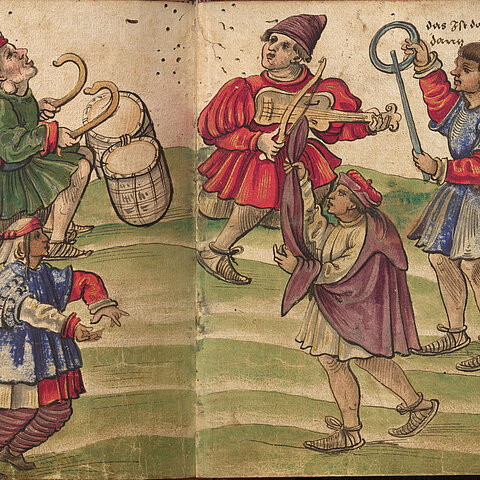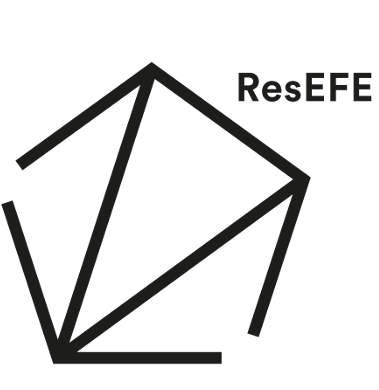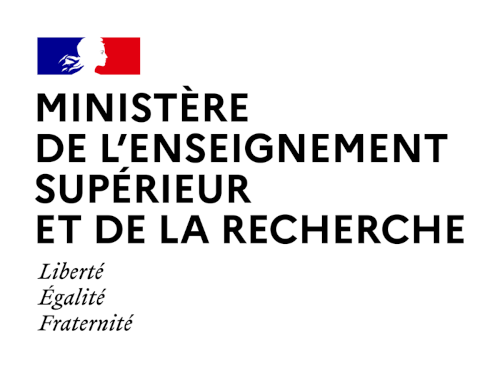Dates : From Monday the 26th to Thursday the 29th of June 2017
Venue : Casa Palacio de los Briones
C/ Ramón y Cajal, 15 - 41410 Carmona (Sevilla)
Applications until March 31st 2017 (midnight, Madrid time)
Presentation
For many years religious history has made its own indelible mark on the historiography of modern contemporary societies and has often been reserved for academics specialising in the study of religion, beliefs or practices, and institutions. However, the issue of religious affiliation remains a key element in social and political history and needs to be reconsidered in the light of the most recent historiographical changes. The aim of this workshop is to reflect on how social sciences have addressed religious affiliation from the late Middle Ages to the present, comparing different geographical areas some of which are quite distant from others.
This will involve analysing the (excessively automatic) association between religion and identity that transforms denominational ties into a breeding ground for social ties. Religious identities are often analysed as the expression of primordial links, constituent elements of groups deeply rooted in culture, attitudes and beliefs.
These identities were especially significant in traditional and ancient societies marked by localism, rurality and patriarchal structures. Modern western societies, however, have been characterised by competition between the monarchical states and papal authority for the control and guidance of religious practice. By differentiating the spiritual from the temporal and forging political unity through religious uniformity, the monarchical powers laid the foundation for a long process of secularisation that enabled Europe to “emerge” from a religion-based society while other regions have remained locked in.
This workshop seeks to analyse this narrative of Western modernity which played a role in the objectification of religion as a specific dimension of the social world. By favouring a localised approach and dense contextualisation, it is instead a matter of re-incorporating religious activities in the social and economic configurations from which they arose. Therefore, it is important to analyse core notions such as ritual or sacred acts in relation to groups, not as a means to perpetuate an unchanging identity but rather as a way to constantly update the fragile boundaries between social groups.
This invites us to revisit interfaith contacts or changes in religious affiliation, not as exceptional moments of transfer, confrontation or mediation between monolithic cultural entities, but rather as normal forms of cohabitation or reintegration of social stakeholders in local social settings. In short, by choosing a pragmatic approach to religion, this workshop invites its participants to question what it is people do when they speak of their religious affiliation and how these actions shape social membership. These are the challenges taken on by social history when it approaches the study of religious affiliation anchored in the situated practices of social actors and keeping a critical distance from the dual prism of state and church.
Purpose and organisation
The workshop will bring together specialists from the Mediterranean, America and Asia and will put the methodological challenges facing the written social sciences worldwide into perspective. With a penchant towards methodological and epistemological reflection, it targets PhD students and post-doctoral students whose work addresses the challenges of social and/or religious membership.
The goal is to establish a work environment and bring together doctoral students and researchers who share a historical perspective and an empirical approach.
For students from the social sciences the aim is to enrich their research enabling them to gain historical perspective of their problems, while for history students the challenge will be to acquire new methods and new concepts to deepen their analysis of historical sources. From the diversity of the empirical, dialogue between different disciplines, periods and purposes will emerge. The aim is precisely to weave these threads and compare and contrast the way that history and other social sciences address these issues.
The goal is also to establish a critical inventory of the latest proposals on how to address the topic of membership. To that end we will offer participants historiographical and methodological references while also allowing them to present their own fields of research, sources and approaches. The sessions will take the form of lectures, working seminars and sessions during which participants present their work. The goal is to open a dialogue among historiographers who are often distant from one another and have them come up with a common reflection on the challenges of religious membership from a global perspective.
Guest speakers
- Angela Barreto Xavier (Instituto de Ciências Sociais da Universidade de Lisboa)
- Ismail Warscheid (CNRS – IRHT, Institut de recherche et d'histoire des textes)
- Jérémie Foa (Aix-Marseille Université)
- Federico Palomo (Universidad Complutense de Madrid)
- Natalia Muchnik (École des hautes études en sciences sociales, Paris)
- Oscar Mazin (Colegio de México)
Candidates
The workshop is open to young Master 2, doctorate and post-doctorate researchers in History or Social Sciences (Sociology, Anthropology, Political Science and Geography), whose work focuses on membership issues (social, religious ...) and employs an empirical approach.
There are 25 places available. Candidates must submit their applications by filling out the on-line form available on the Casa de Velázquez website before 31 March 2017 (midnight Madrid time). Applicants will be informed by email of the result of the selection process after 17th April 2017. Applications from young researchers doing their (post) doctorate outside of France are especially welcome.
Expenses
There is no registration fee for this doctoral workshop. The organisers will provide half-board accommodation from Monday the 26th to Thursday the 29th of June 2017 (three nights). Students must take care of their own travel expenses from their home town to Carmona (Seville, Spain). To facilitate travel, sessions will begin on Monday, 26 June at 16:00 and will end on Thursday, 29 June at 14:00.
Languages
French, Spanish and English are the working languages. Participants must be able to express themselves clearly in one of these three languages and have at least a passive knowledge of the other two (this is essential to understand the lectures and debates).


















